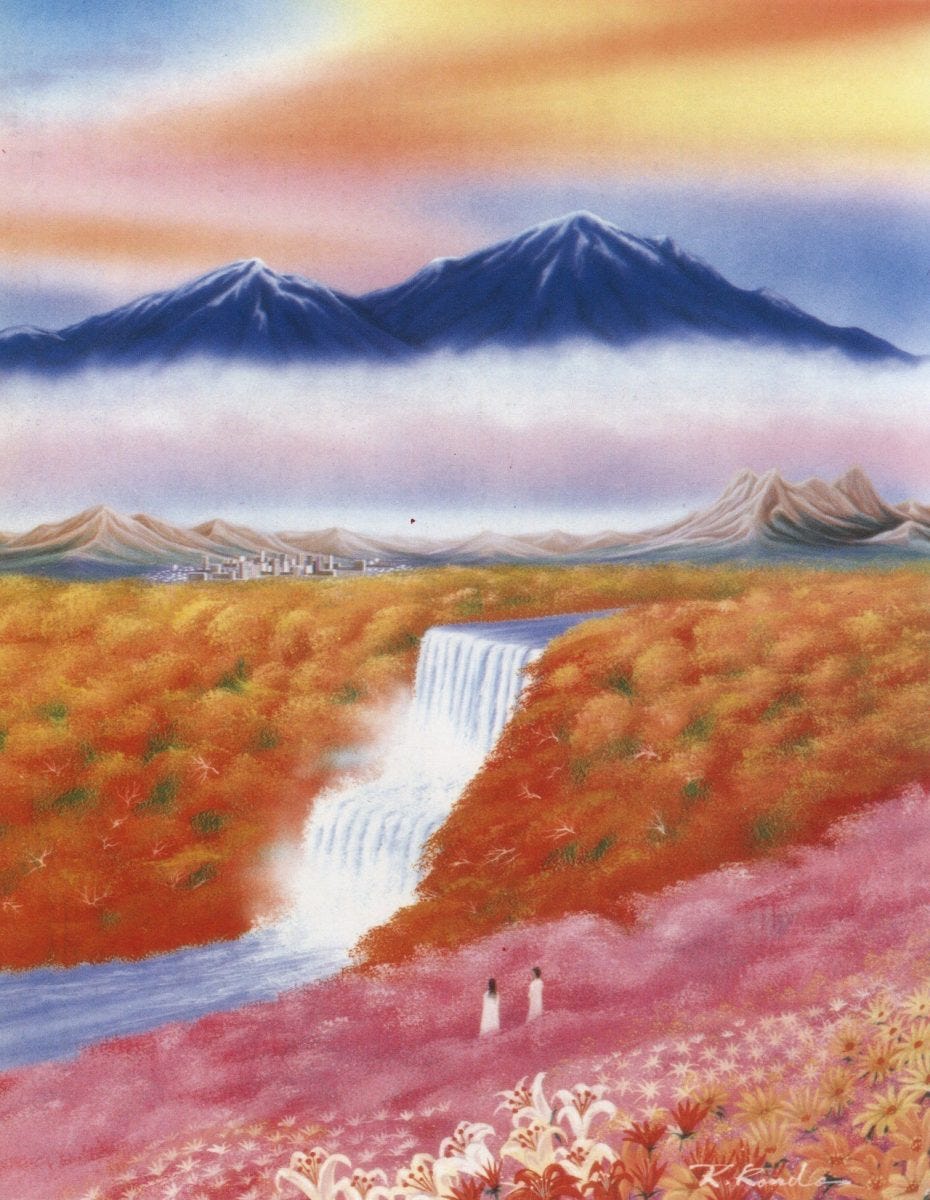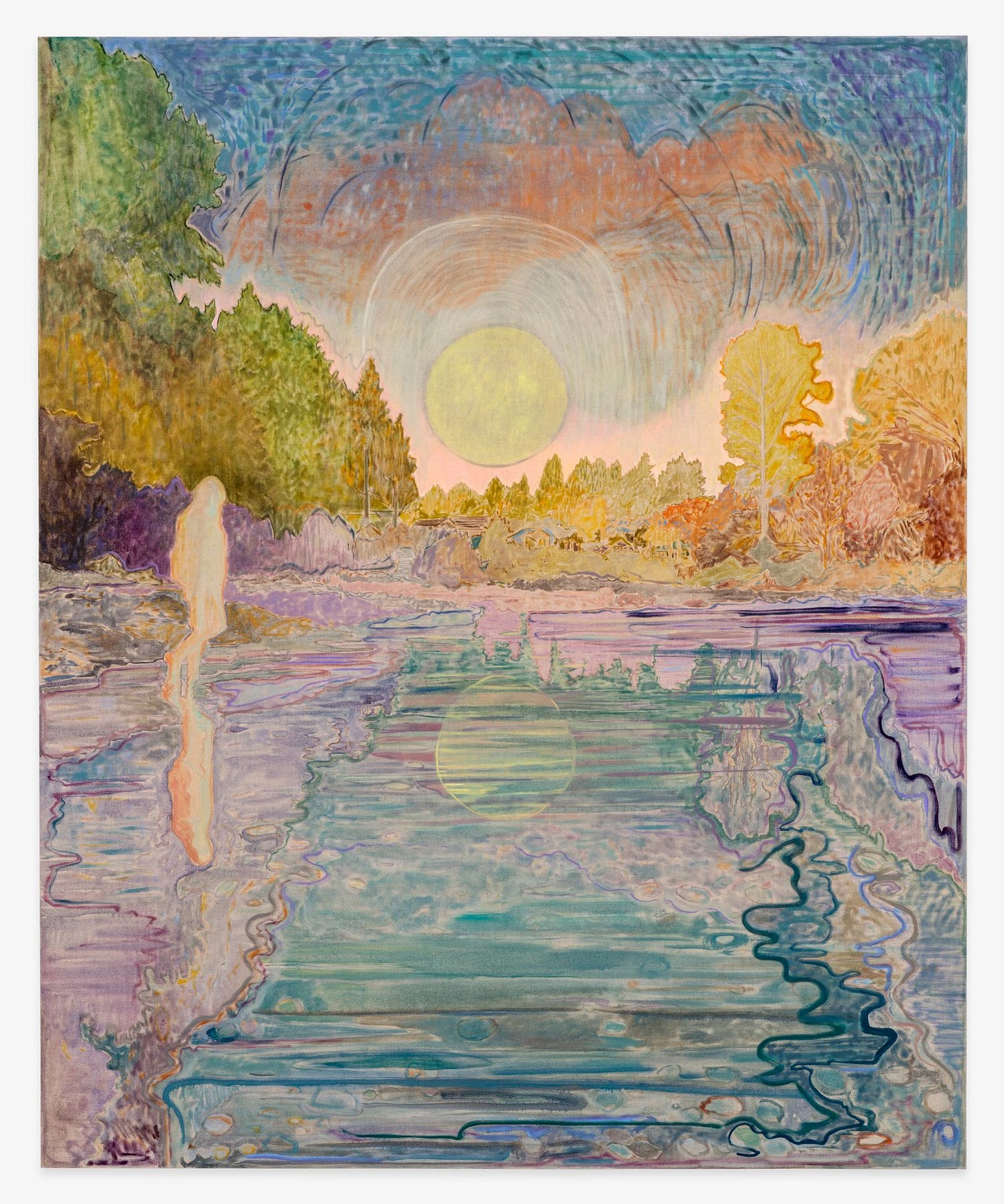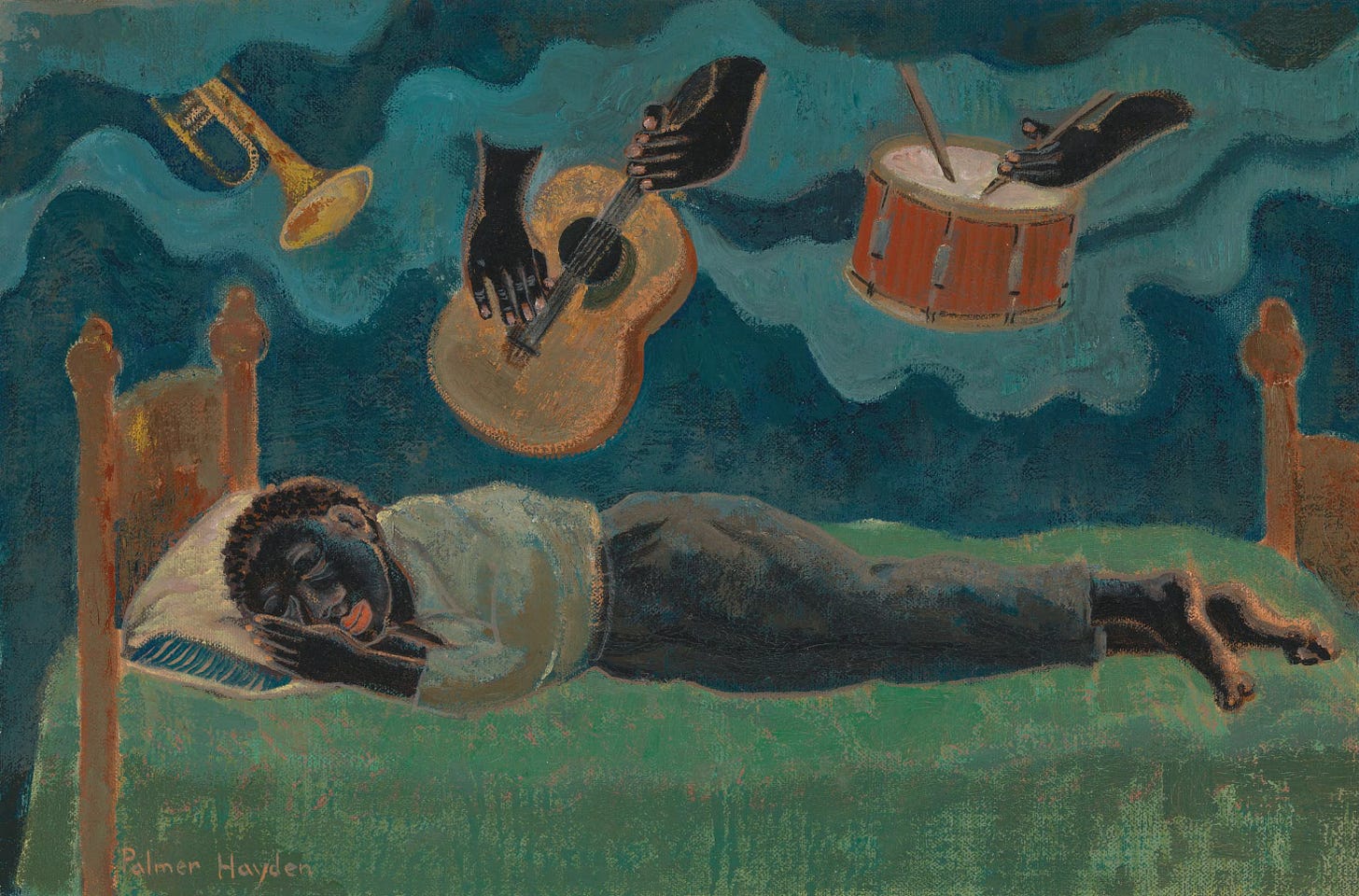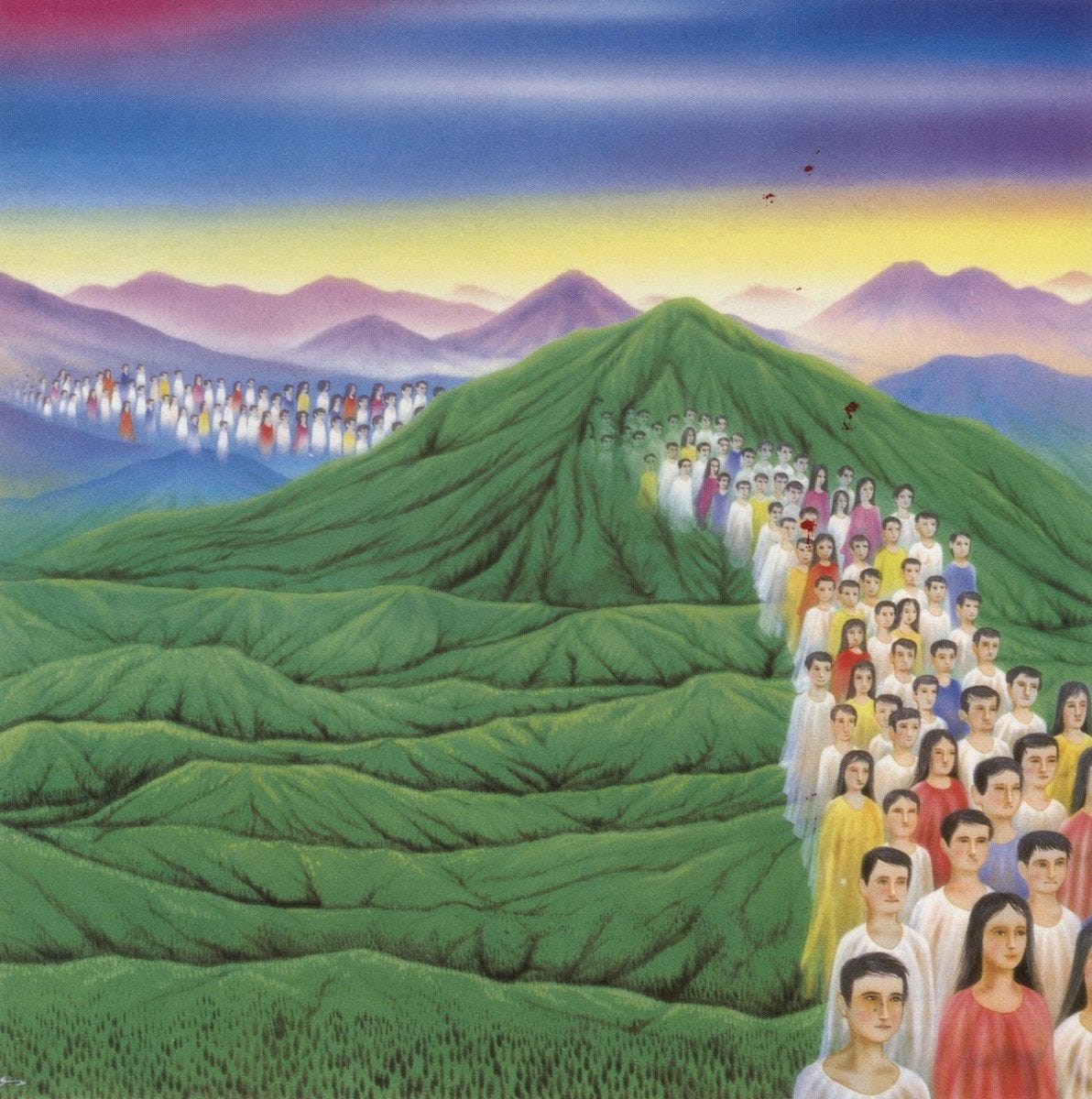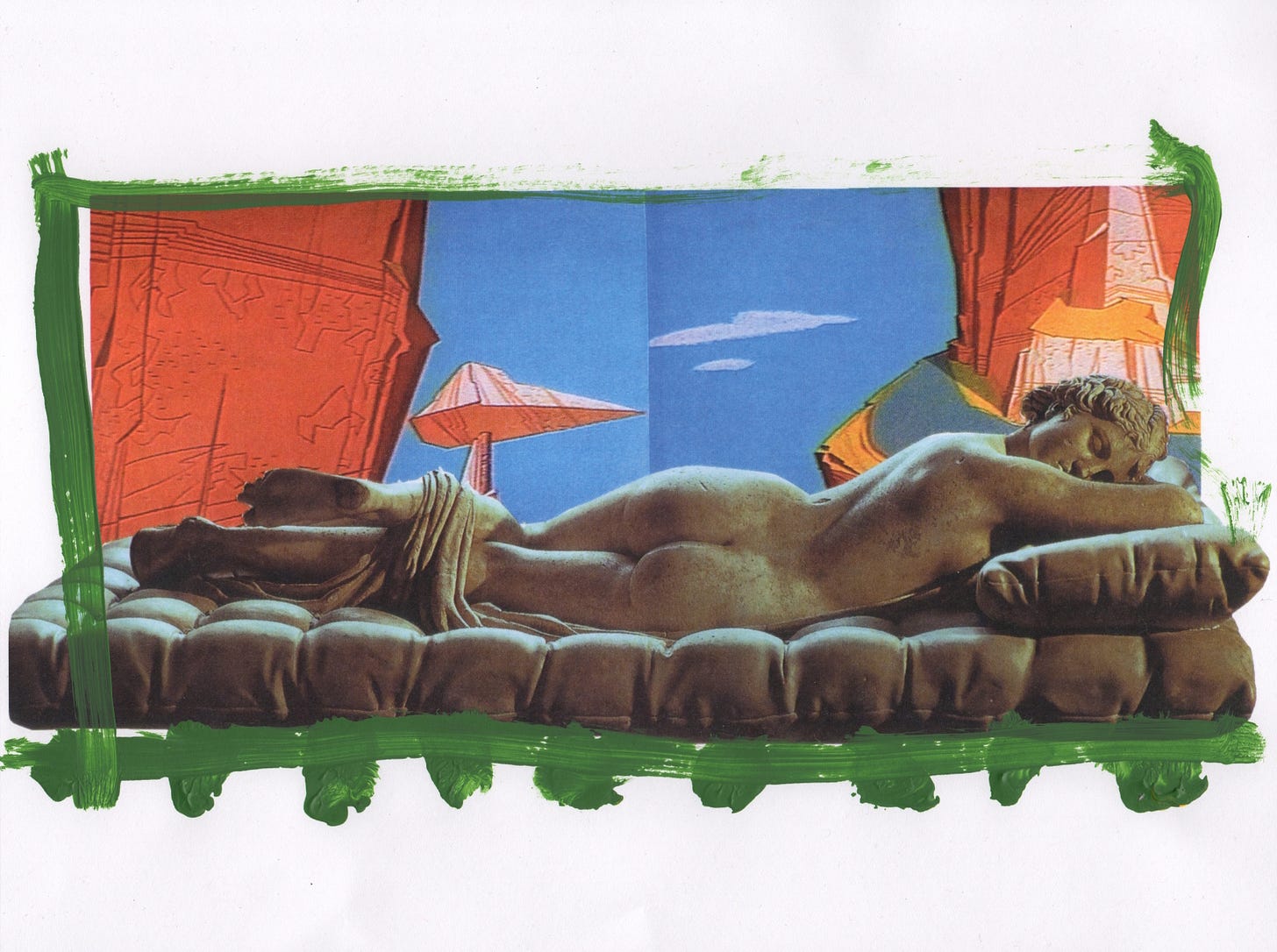The Flaw in Fantasy
Reclaiming the Dream
-R. Kondo
Listen while you read. Find the “A Dream After Waking” Playlist Here.
“You may say I’m a dreamer but I’m not the only one,” sings John Lennon in his classic, Imagine (most definitely inspired by Yoko Ono’s imaginative art book, “Grapefruit”). The song sprang to mind recently when I heard an acquaintance refer to someone as, “a dreamer.” I couldn’t help but wonder what this was supposed to mean. It’s a phrase I’m familiar with, as I’m sure many of you are, too, but I hadn’t given it any consideration before. Perhaps because we’ve been so enveloped by this idea of developing “The New Dream,” the term demanded my attention.
Most typically, calling someone a “dreamer” means questioning their pragmatism and insinuating that they lack a kind of realism in their thinking. You might say a dreamer has lofty ideals that need grounding. But the word, “dreamer,” has been terribly misconstrued. I would argue that most people do not mean to conflate a lack of pragmatism with dreams at all but, rather, with fantasy. I’m sure you’re asking yourself, what on earth is the difference? And why could it possibly matter? We’ll get to that, of course. However, first, let’s start by parsing these two ideas apart.
-Hayley Barker, Jennie at the River (After the Fire)
A dream, beyond the obvious experience during sleep, is defined (on Google) as, “a cherished aspiration, ambition, or ideal.” A fantasy, meanwhile, is defined as, “the imagining [of] things, especially things that are impossible or improbable.” It’s clear that both dreams and fantasies yearn for an unattained goal, but they go about this yearning in different ways. A dream is a long-term object of our affection, while a fantasy can be an unrealistic, or perhaps misguided psychic image desired in the short term. The time frame is important. We’ll discuss why later.
Dreams are like silent motivations, or a guiding light calling us forward. When distracted by what’s at hand, our dream remains in the background, waiting patiently for its next window of opportunity, yet always moving us toward what we want to create. You might call a dream the objective of the soul. Our soul desires to become more and more itself; to widen, expand, resonate, and fulfill. It is the butterfly freshly formed from the primordial ooze of its cocoon, drying on a branch, stretching its wings in preparation for flight.
On the other hand, you might call fantasy an egoic objective. The glitter that captures our attention from time to time and perhaps even distracts us from the soul’s deeper yearning. While we dream of being an artist of some kind, we might fantasize about making great sums of money. While we dream of being leaders in our field, we might fantasize about fame or notoriety. Fantasy serves the earthbound limitations of our ego, while dreams are an attempted outward realization of our unique gifts through means that serve the community.
-Palmer Hayden, Untitled (Dreamer)
that the toilet never choked
and the balloons never fled.
that I always found the last piece of the puzzle.
that I caught the train by its collar
and parking had the ease
of sliding into a dress.
that I witnessed small births,
smaller breaths: the yarrow and snapdragon, hibiscus blooming
at the stroke of spring.
that I wrote more.
that I wrote fearlessly.
that I hid myself in a poem
and returned as a good human.
that I conquered every loss
and buried every war.
that I woke to a body without pain.
that no one flinched at my touch, and I loved
with all the doors unlocked.
-Grace Q. Song, Fantasy (after Shelley Puhak)
Author and speaker John Perkins, who we have shared a lot this year, trained for a time in Ecuador under Manco, a shaman and healer. Manco taught John that our culture had difficulty differentiating between dreams and fantasies, but stressed that it was very important that we learn how to do so for the benefit of the world. Manco claimed that, by nature, dreams come true. So if we confuse our fantasies for dreams, we set in motion the realization of what ought not to have been a dream in the first place. The result can be, as we have seen across the globe, a tremendous amount of pain.
Manco expressed that we, “have convinced [ourselves that we] can control Earth, a fantasy that is wonderfully entertaining, but one that as a dream is terribly destructive.” To think we can control nature means we view ourselves as above it somehow. But there is no way to get above what we are. It is like trying to escape your shadow, or somehow slip out of air. Yet we as a collective have made this our dream for many centuries.
-R. Kondo
It is the stance of Manco, and many great healers and leaders like him, that our culture has unfortunately confused its wildest of fantasies for its deepest of dreams. What we see when we look out across the world is the living fantasy of a culture too long removed from the act of dreaming. Dreams have been denigrated and thought of as childish. Meanwhile, fantasy has become a sort of ubiquitous drug that enables our consumerism and keeps us well short of higher consciousness.
The fantasy of power, of wealth, of status and fame, materialism, consumerism, and independence have become the American Dream. Maybe they always were. We have historically had an insatiable national fantasy that has developed into a corrupt and impossible dream in which we are distinct from nature, independent, and “free.”
-Joe Kupillas, Looney Dreams
Keep reading with a 7-day free trial
Subscribe to Inner Vision to keep reading this post and get 7 days of free access to the full post archives.



